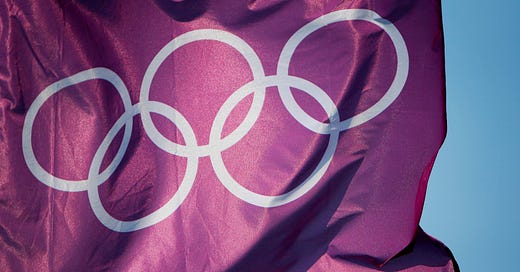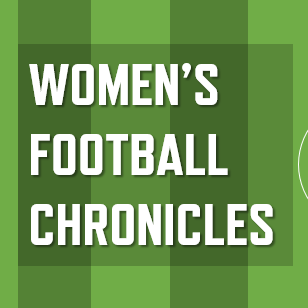Paris 2024: The Good and The Bad
As the dust settles on a fast and frantic couple of weeks of action, we saw the best and worst of the what the Olympics has to offer...
Less than three weeks since even the first game kicked off, the Paris 2024 Olympic Games football tournaments are completed.
26 games later across just 17 days, Emma Hayes and the USA came out on top in a tournament which showed off the best and the worst of the format an Olympics throws up, and while it leave many salivating for the next major tournament, it also threw up many major questions about where this specific format is heading, and what could do with a tweak over the next four years.
Because there’s no doubt, an Olympic Games heading to Los Angeles and therefore the USA entering the women’s football as defending gold medallists will come with a natural amount of fanfare and scrunity, plus the growth of the sport as a whole across the next four years too.
So, with that in mind, what is working well, and what could do with a change before 2028?
Check out over 100 more unique stories in WFC’s Premium section, available for just £45 for 12 months, paid in one go, or a £6 a month rolling subscription.
All subscriptions come with a 7-day free trial to allow you to explore our full archive.
Plus, guarantee you everything that is to come over the next 12 months…
The schedule
“It is what it is,” said Hayes after the USA’s semi-final win over Germany. “I don’t like it, but it is what it is.”
As she semi-sarcastically celebrated the fact her team had three days rather than two between the semi-final and final, it hit home just how tough it is when you combine all the different factors.
One big talking point pre-tournament was the fact you can only pick 18 players, rather than the 23 you get for a World Cup or major continental competition.
The alternate rule was tweaked to allow teams to temporarily call on their four back-up players, and given how often it was utilised, god only knows how bad it would have been without the change.
Some alternates, such as Germany’s Janina Minge, ended up starting most games in the tournament, including the final.
Another is the weather. It’s the summer, so naturally in France it was hot, and during most games it was at least 30 degrees, even in the evening. To play every three days in that heat with little room for rotation after a long domestic season is tough on any player.
We saw first-hand how it took its toll on players, and watching three separate Colombia players stretchered off against Spain will live long in the memory.
If a player is suspended, you only get six substitutes, meaning on occasion teams were going into battle with just 17 players, which is extreme to say the least.
When you combine all the different factors, squad sizes, weather, travel, lack days between games, it doesn’t feel at all like we’re doing anything near the best we can for player welfare, and the weather in the USA in 2028 will likely be even more extreme, as will the travel.
By nature the Olympics lasts two weeks, with the women’s football tournament starting a day before the opening ceremony, but given it is largely cut away from Paris anyway and taken around the country, would it really hurt to start it a few days earlier?
Drama and shock results
And this is the flip side, because the nature of a tightly-fought tournament between only 12 nations having to somehow find their way through every obstacle thrown their way made for some superb games and superb storylines.
Even of just the games I attended live, I saw the dramatic stoppage time winner from Vanessa Gilles as Canada recorded an emotional win against hosts France in front of a noisy and packed stadium in Saint-Etienne, and also saw Spain’s dramatic comeback from 2-0 to beat Colombia on penalties in Lyon.
Yes, some of the knockout games were tense and lacking goals, and while that’s also a result of the schedule, it’s also a result of the fact these are some of the best teams in the world going head-to-head and you’re unlikely to see 4-3 thrillers when some of the best defenders in the world are on the field.
Brazil finished third in their group, qualifying by a single goal, yet went all the way to the final, and on another day could and should have absolutely beaten the USA in Paris.
That’s because it’s so hard-fought. Third wasn’t a slight on Brazil who beat Nigeria, were 1-0 up to Japan until stoppage time and battled hard against world champions Spain, so it shouldn’t be such a huge shock they went as far as they did, it just hammers home how competitive this tournament is, and that’s the positive side of the uniqueness of the Olympic Games format.
Did it capture the imagination?
Being cut away from Paris bar a few games, it was hard to know what to expect in terms of attendance and atmosphere at games dotted around the country as far away as Nantes and Bordeaux on the west coast and Nice and Marseille on the south coast, all hundreds of miles away from where all the eyes of the world were focused on.
At an Olympics, football is not the main focus, merely part of a greater spectacle, but with 12 of the best national teams and hosts who were fancied to do quite well, surely fans would come out to support the matches?
Comparing the accumulative group stage attendances of the men’s and women’s tournaments isn’t fair because there were eight games a day in the men’s competition compared to six in the women, but the knockout stages offer a better balance.
Bearing in mind the men’s tournament is only for under 23 players, bar a couple of overaged players, and therefore doesn’t have the all-star quality of the women’s tournament, the four men’s quarter-finals had an accumulated attendance of 122,885, while the women’s quarter-finals came in at 98,156.
The semi-finals saw an even greater disparity, with the two men’s matches drawing 107,412 fans compared to 25,917, but the fact the men’s semi-finals involved both hosts France and a Morocco team who drew a huge following everywhere they went accounts for a lot of that disparity.
The final was way more even, with the women’s final only coming in 400 supporters behind, in a game held in the same venue, and again with the men’s final involving the hosts, while the women’s final involved two nations from continents well away from Europe.
Attendances by city
41,813 Paris GOLD MEDAL MATCH
43,004 Paris QUARTER-FINAL
40,918 Paris GROUP STAGE
32,280 Nantes * QUARTER-FINAL
29,208 Lyon * GROUP STAGE
21,946 Lyon * GROUP STAGE
17,555 Saint-Etienne * GROUP STAGE
14,497 Bordeaux GROUP STAGE
14,201 Marseille SEMI-FINAL
13,036 Marseille GROUP STAGE
12,845 Marseille GROUP STAGE
12,517 Marseille QUARTER-FINAL
11,716 Lyon SEMI-FINAL
11,079 Nantes GROUP STAGE
10,995 Lyon BRONZE MEDAL MATCH
10,377 Nantes GROUP STAGE
10,355 Lyon QUARTER-FINAL
9,731 Marseille GROUP STAGE
6,480 Nantes GROUP STAGE
6,244 Bordeaux GROUP STAGE
5,550 Nice GROUP STAGE
5,388 Nice GROUP STAGE
5,212 Lyon GROUP STAGE
4,441 Nice GROUP STAGE
2,674 Saint-Etienne GROUP STAGE
2,642 Saint-Etienne GROUP STAGE
* Hosts game
But, it meant something
And in reality, that’s what it boils down to. Yes, football isn’t the main event at an Olympic Games, and for some that equates to not being as important as a World Cup or a European Championships, but the emotion shown throughout this tournament by both winners and losers showed just how much it did mean to try and get an Olympic medal.
After the quarter-final defeat to Spain, Colombia’s players were devastated in the mixed zone straight after the match, and it was the same when Germany lost to the USA and again in the bronze medal match when Spain subsequently lost to Germany.
There were tears on both sides, and the sheer joy on the faces of the USA players shows how much it means to win Olympic gold. It’s an Olympics, it’s a once every four year event, and that’s a huge thing because it means it doesn’t come around often in anyone’s career, and it doesn’t afford many opportunities to win a medal.
That is the essence of the competition and the very top reason to ensure football remains at the Olympic Games for years to come, but there’s very little doubt somewhere along the line the overall format definitely requires a tweak or two, hopefully by 2028.
Check out more Paris 2024 content…








